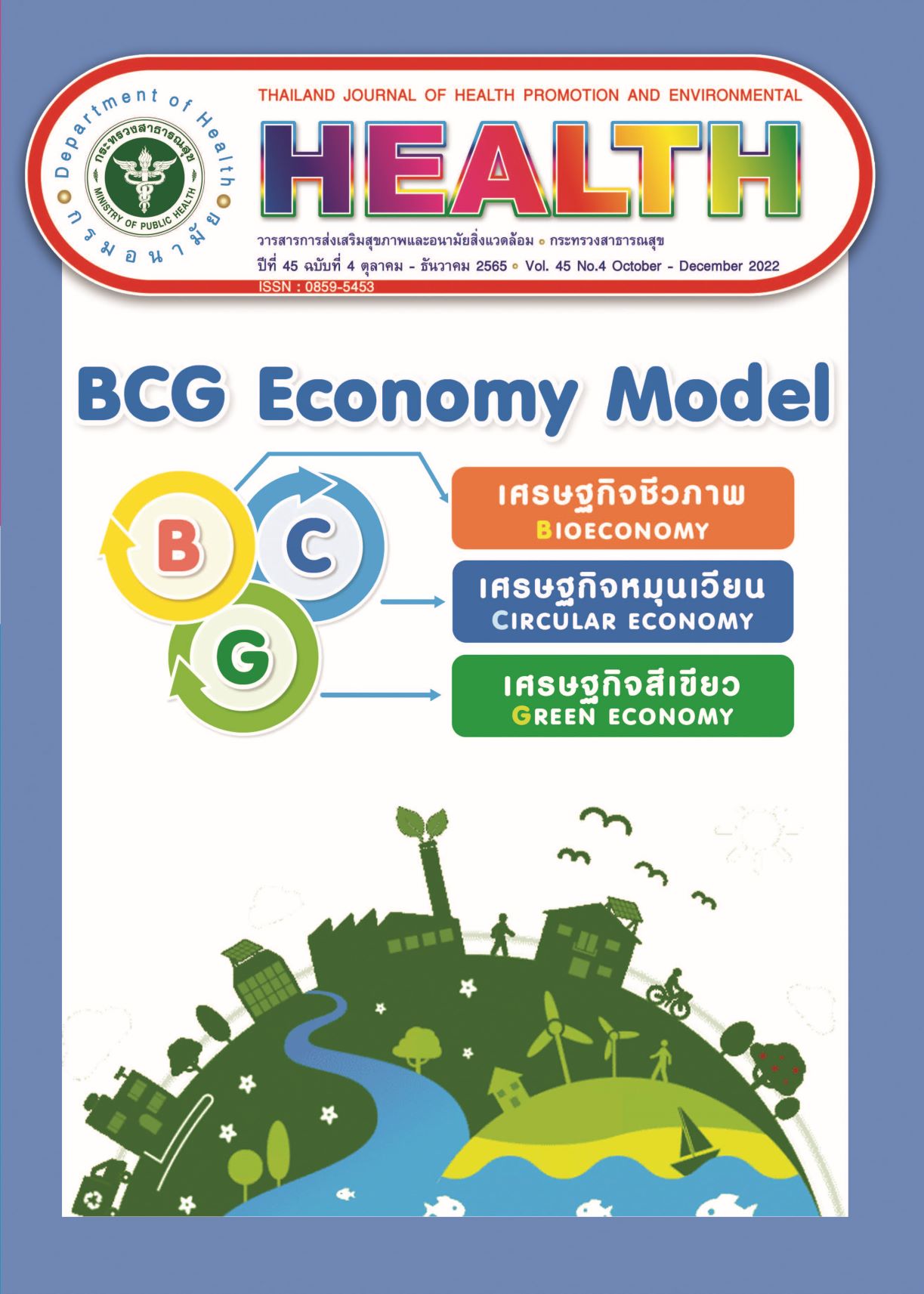Development of a mechanism model for care and support of pregnant adolescents in Saraburi Province: Participatory Action Research (PAR)
Keywords:
adolescent pregnancy, a mechanism for supporting pregnant adolescents, the Act for Prevention and Solution of the Adolescent Pregnancy Problem, B.E. 2559 (2016)Abstract
This action research was aimed at developing a mechanism for supporting adolescents in Saraburi Province to exercise their rights under the Act for Prevention and Solution of the Adolescent Pregnancy Problem B.E. 2559 (2016). It was conducted from July to September 2022 and divided into four phases: 1) preliminary study, 2) development of a participatory mechanism for supporting pregnant adolescents, where the sample group included those responsible for the operations in the Ministries acting under the Act for Prevention and Solution of the Adolescent Pregnancy Problem B.E. 2559 (2016), except for representatives from the Ministry of Higher Education, Science, Research and Innovation that did not participate in the Subcommittee for Prevention and Solution of the Adolescent Pregnancy Problem in Saraburi Province, and an in-depth interview form and a group discussion were conducted to develop the mechanism, 3) implementation of the mechanism, and 4) evaluation, improvement, and re-implementation of the mechanism by using a report of pregnant adolescent services for public health service facilities and adolescent homes and families. Quantitative data were analyzed by determining the frequency and percentage, and qualitative data were analyzed by categorizing the data and finding the conclusions. It was found that the mechanism for supporting pregnant adolescents in Saraburi Province consisted of five channels: Hotline 1300, adolescent homes and families, schools and educational service area offices, public health service facilities, and Hotline 1663, which can provide pregnant adolescents with good care, assistance, and referral according to the respective agency’s roles and missions because there is collaboration among the parties involved in the network. What needs to be further developed is an integration of support information kept in each agency without being linked to each other, causing a lack of general information of the province and thereby a difficulty in making policy decisions. An obstacle to the provision of reproductive health services is an anxiety in providing services. With no parental consent, adolescents are unable to decide to receive services under their rights. Therefore, it is suggested to implement the mechanism for supporting pregnant adolescents in conjunction with the development of knowledge and understanding of relevant laws in order to reduce an anxiety in providing services and allow adolescents to exercise their rights under the Act. An intensive prevention should also be considered to cut off the cycle of unprepared pregnancy that directly affects the children born.
Downloads
Published
Issue
Section
License
Copyright (c) 2022 Thailand journal of Health Promotion and Environmental Health

This work is licensed under a Creative Commons Attribution-NonCommercial-NoDerivatives 4.0 International License.

